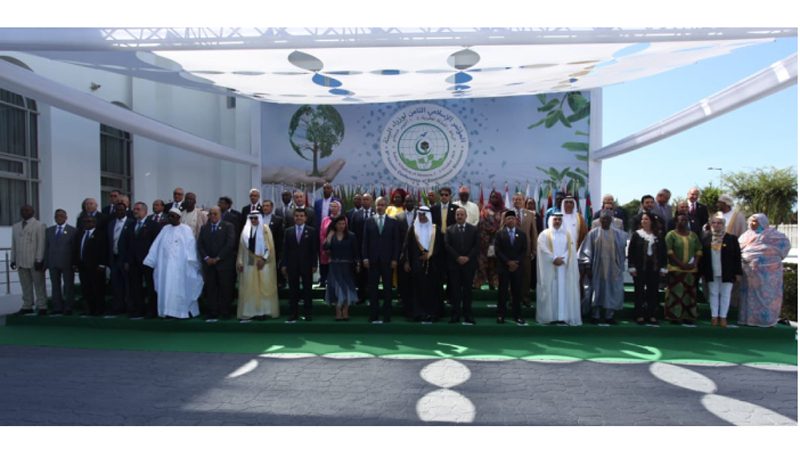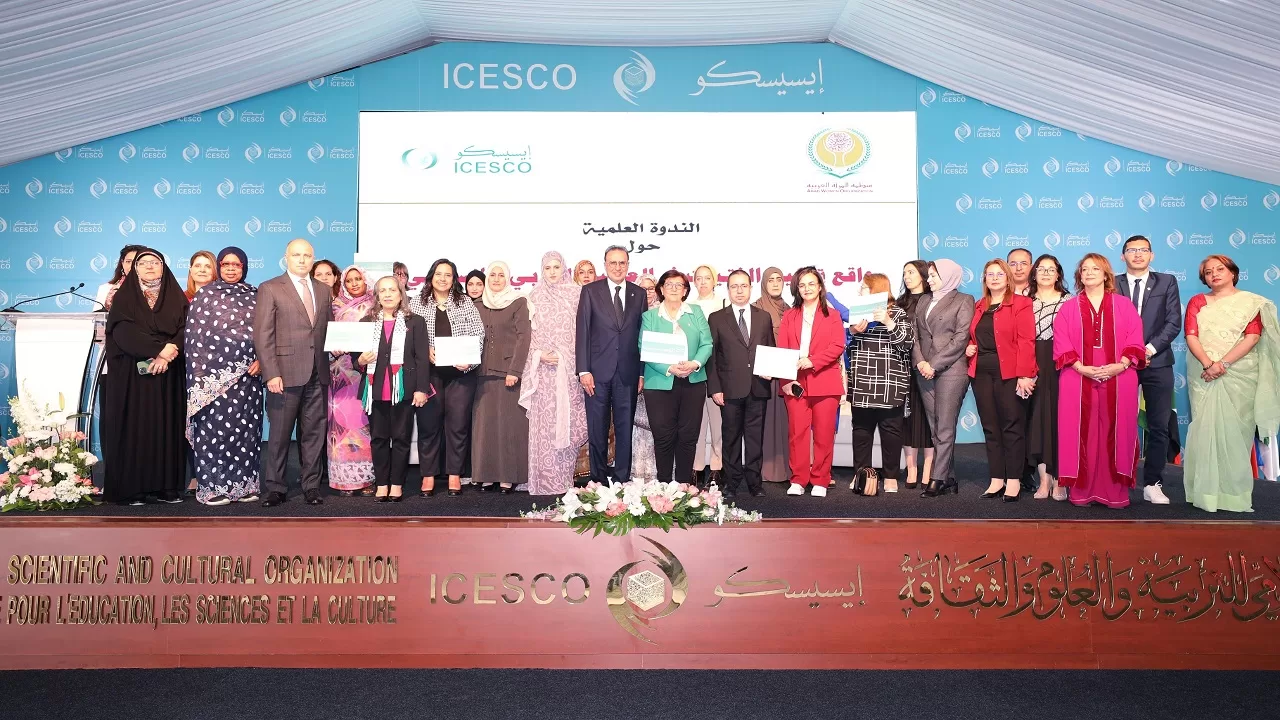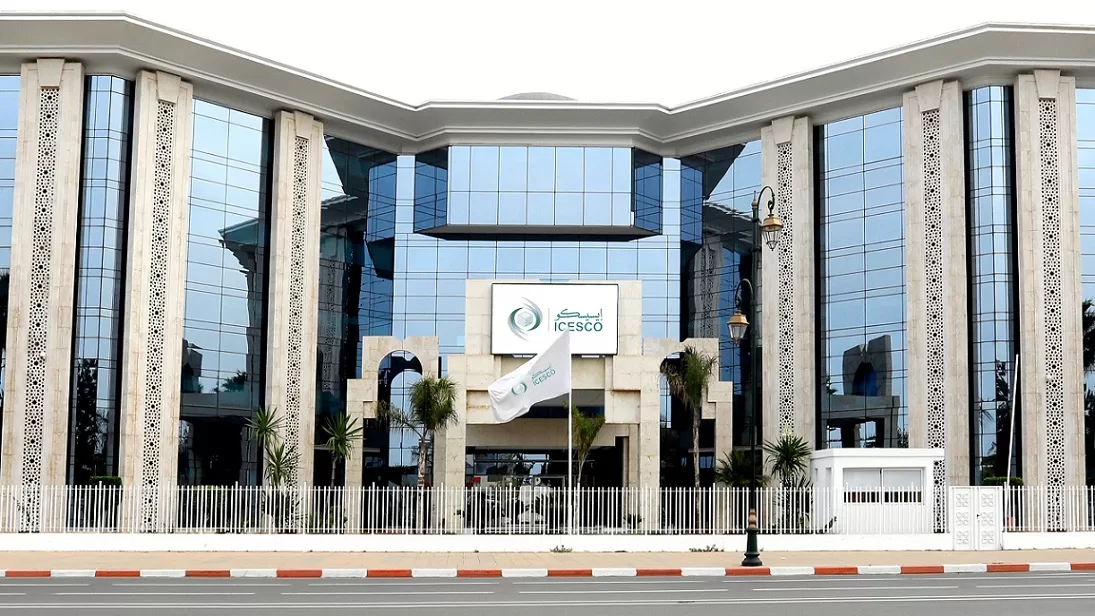
Eighth ICEM adopts Rabat Declaration on the Promotion of Cultural and Religious Roles in the Protection of the Environment and Achieving Sustainable Development

4 October 2019
At its close, the Eighth Islamic Conference of Environment Ministers (ICEM) adopted ‘Rabat Declaration on the Promotion of Cultural and Religious Roles in the Protection of the Environment and Achieving Sustainable Development’.
The conference stressed the importance of renewing Member States’ political commitment to support international sustainable development agendas, in line with internationally agreed principles and frames of reference; harnessing all national and international efforts to achieve sustainable development while being mindful of cultural and natural peculiarities; demonstrating the political will as being a prerequisite for any success in this field; fulfilling the financial and technical obligations; engaging civil society organizations and the private sector given their vital role in this field; and urging the international community to take concrete measures to cancel loans and facilitate access to markets, transfer technology and build capacities.
The participants also called for concerting efforts of the international community to end internal wars, occupation and conflict that have raged in some Member States, which have resulted in the destruction of the environment and sustainable development infrastructure, increasing flow of refugees, destroying historic monuments and cultural and civilizational heritage, on equal footing in joint action, in accordance with Principle 23 of the Rio Declaration on Environment and Development (1992) which provides for the protection of natural and cultural environment under war and conflict, despite the impossibility to achieve sustainable development in an instable and insecure environment.
Besides, the Conference noted that Member States, given the distribution of their natural resources, suffer from the effects of weather extremes and their ensuing plethoric challenges, particularly water depletion, low food production, rising sea levels, and drought waves which require urgent measures to reduce the risks and impact of disasters such as earthquakes, floods, drought, hurricanes and other disasters, through early warning and integration of disaster risk reduction strategies in sustainable development policies at all levels, and the promotion of investment in disaster risk reduction. It also stressed on the activation of the relevant international conventions, most notably those of the Conference of the Parties on Climate Change, held in Paris (2015) and Marrakech (2016) and its subsequent sessions; and called for the activation of the roles of the Global Facility for Disaster Reduction and Recovery, development banks, donors and international funds in supporting the executive action plan to implement the “Islamic Strategy for Risk Reduction and Management”, as part of the synergy between north and south countries to face the impacts of these phenomena.
The participants also reaffirmed their commitment to give effect to the contents of the “Guidance Document on Green Cities and their Role in Achieving Sustainable Development”, issued by the Seventh Islamic Conference of Environment Ministers during which the “Programme of the Celebration of the Environment and Sustainable Development Islamic Capitals”, was launched to be supervised by ISESCO according to well-thought action covering outstanding cities from all over the Islamic world and rewarding green cities having won the Kingdom of Saudi Arabia Award for Environmental Management in the Islamic World at its fifth category dedicated to “Islamic Green City” of which ISESCO assumes its General Secretariat.
They have also recalled the important role of the green economy in creating “green job opportunities” in several economic sectors such as renewable energy generation, energy efficiency, rehabilitation of the ecological system, environmental protection, ecological tourism, waste management and other areas that can contribute to solving the issue of youth unemployment, which require adequate policies to support small and medium-sized enterprises (SMEs) and help them adapt to the requirements of the green economy.
Moreover, the participants reiterated their commitment to the improvement of the water situation in Member States and the implementation of more technical and legal measures under the Strategy for Water Resource Management in Islamic Countries and related plans, the OIC Water Vision for 2025, and the action programmes of the OIC Water Council; recommend the implementation of the United Nations Convention to Combat Desertification in the Countries Experiencing Serious Drought and/or Desertification (UNCCD); and reaffirmed that the water issue cannot be disassociated from the one of food security which constitutes a central issue in most Muslim countries.
By the same token, the participants stressed the need to raise awareness of the importance of non-governmental organizations and young people’s skills in societies, promote the role of women in operating the mechanisms of production, social solidarity and poverty eradication to achieve sustainable development through involvement, capacity-building, and human resource rehabilitation through education, training and skill honing and the choice of the most adequate applications and projects from the economic and technical perspectives to fight all forms of social exclusion and promote cooperation among all parties concerned in Member States and other parties in view of implementing integrated programmes within the framework of Sustainable Development Goals for 2030.
In addition, the participants took into consideration the developments on the international scene relating to the redemption of the substantial role played by religions, cultures, beliefs and local customs in promoting the protection of the environment and achievement of the development goals set in Agenda 2030 and beyond, which include, in addition to the achievements accomplished in the Islamic world, namely “the Islamic Declaration on Sustainable Development” issued by the First Islamic Conference of Environment Ministers held in Jeddah in 2002, the Pope’s encyclical Laudato Si “On Care for our Common Home” issued in 2015, of the “United Nations Strategy for Engaging with Faith-Based Organizations” launched in 2018 to protect the environment and attain sustainable development, the initiative of “Faiths for Earth” issued in 2019 by the United Nations Environmental Programme, the contents of “Makkah Charter” issued in 2019, the recommendations of Medina Forum on “the Role of Religious Speech in the Protection of the Environment” held in 2018, and the activities and experiences of ISESCO and other organizations in this field.
The participants also stressed that environmental challenges, despite being a new topic in people’s understanding and scientific interests, are consistent with the fundamental relevant answers relating to the challenges of protecting the environment given in religious texts and the principles of social education and upbringing in all beliefs and cultures regardless of their differences; and undertook to promote the understanding and capacity of environmental communication between Muftis, Ulemas, imams, preachers, and promoters of the Islamic faith and activists in relevant associations through forums, short workshops and other information media in order to vulgarize the hallmarks of the crisis and the issue of sustainable development from a scientific, religious and cultural perspective, show their social and economic implications on the future of communities and encourage academic research in the field.
They also recommended the adoption of the best practices being implemented inside and outside the Islamic world in the field of working with faith-based institutions in the protection of the environment and achieving sustainable development through inventorying models and specificities of the Islamic world experiences and joining the United Nations strategy and executive programmes in this field such as the initiative of “Faiths for Earth” and other international organizations such as the International Union for the Protection of Nature (IUPN), and the religious institutions working in the field such as the Vatican. They also recommended benefiting from the experiences of national institutions and field and scientific associations active in the environmental and cultural action which Muslims and followers of religions in Member States are interested in.
Likewise, the participants considered the adoption of the “Strategy for the Activation of Cultural and Religious Factors in the Protection of the Environment and Achieving Sustainable Development in the Islamic World” and the call for establishing the “Islamic Network for Environmental Action and Sustainable Development” good tools for federating efforts and sharing experiences inside and outside the Islamic world with national, regional and international organizations and various civil society organizations regardless of their religions and cultures inside and outside Member States’ communities; encouraging scientific research on the issue, and ensuring the necessary support for faith-based institutions active in the protection of the environment and sustainable development.
Moreover, they highlighted the importance of environmental education and the need to activate its presence in religious schools, public and private formal schools and in the media. Teachers themselves need enlightenment to strengthen the environmental programmes existing at schools while giving examples of environmental measures to step up the pace of self-motivation among students to protect the environment. They also undertook to ensure the incentives through well-thought support, organizing contests and establishing prizes for environmental associations and activities of green schools based on indicators measuring concrete actions on environmental protection such as the provision of energy, management of waste, forestation, hygiene and sewage, waste recycling, providing educational material that is open to the cultural and religious dimension, and the importance of protecting the environment and its integration in current school curricula. Faith-based non-governmental organizations may seek the assistance of journalists to use the media to spread best practices and knowledge based on moderation in understanding texts and activating their meanings.
The conferees considered that the principles of Islamic economy and the fundaments of social solidarity in Islamic rites are based on achieving the purposes of the Sharia in preserving the five fundamentals ensuring the balance and continuation of human life. Thus, the economy is an effective tool for directing the management of natural resources towards economic development, for the Islamic finance is based on real economy which prohibits usury and encourages initiatives to take concrete measures to ensure the well-being of man through organizing the exploitation of the planet’s resources as a sustainable heritage that should be enjoyed by future generations on the basis of cooperation and participation.
In addition, they called for mobilizing the efforts of Islamic finance, including Waqf and Zakat and organizing charity and alms to attain the goals relating to poverty, vulnerability especially in the social sectors such as education and health in accordance with Sustainable Development Goals. Waqfs can be more creative in choosing and implementing their projects such as the provision of clean water, management of natural reserves and protection of public lands to be used for agriculture or forestation, planting fruit trees or developing pasturelands.
They also called upon the competent authorities in Member States, the Conference presidency and ISESCO to follow up the implementation of these obligations, orientations and recommendations in cooperation and coordination with the relevant parties.





